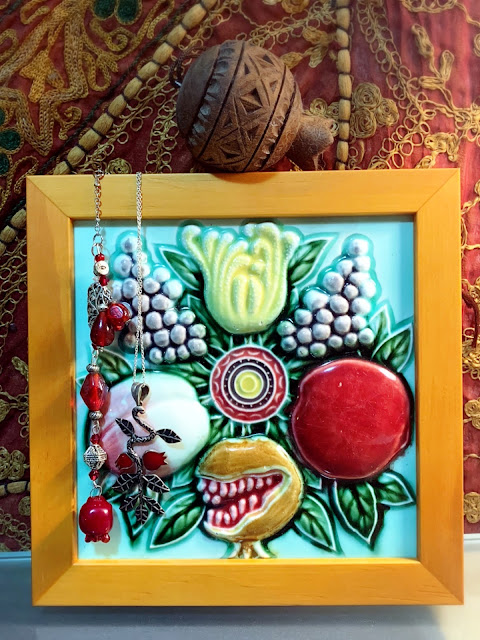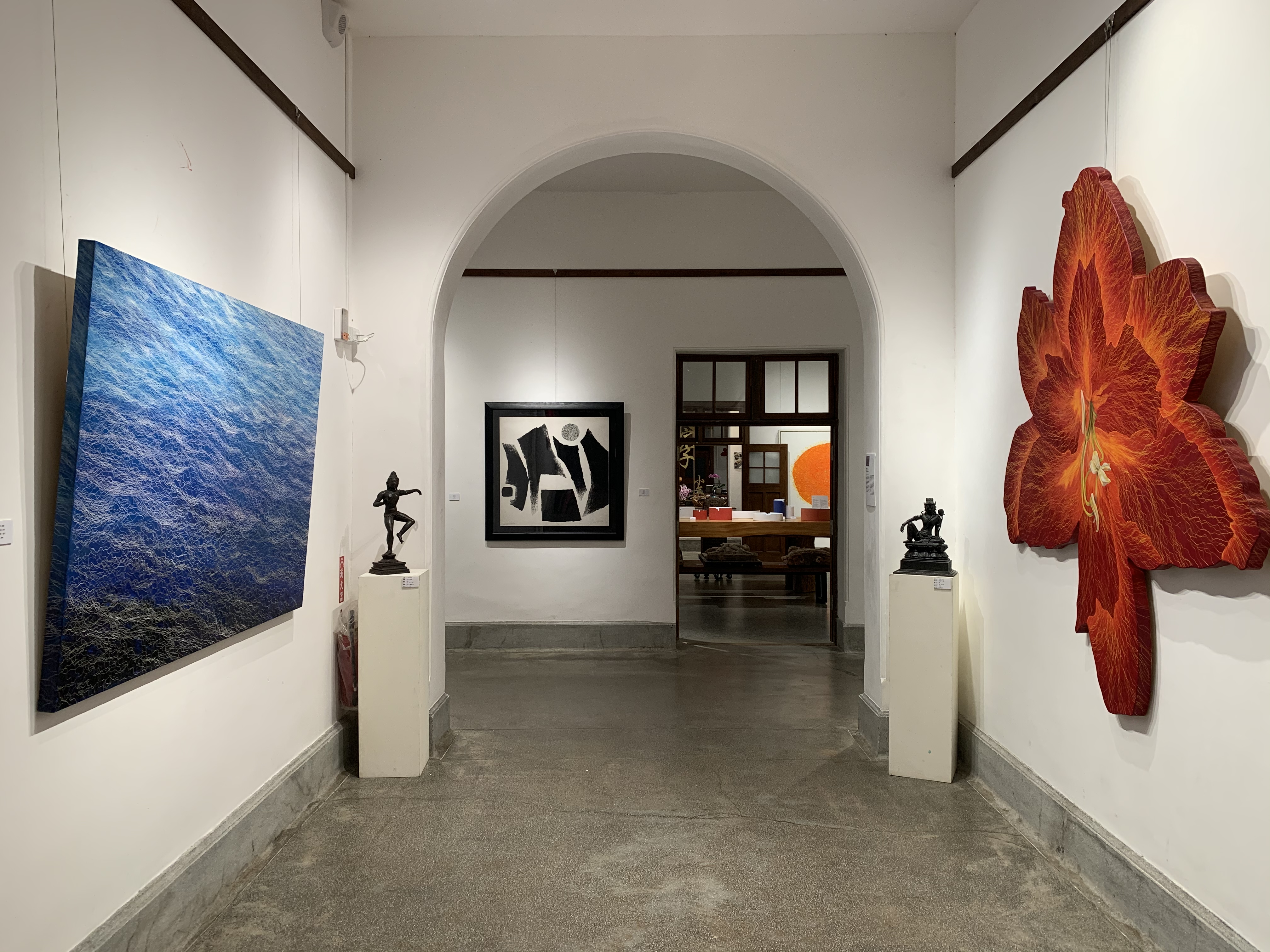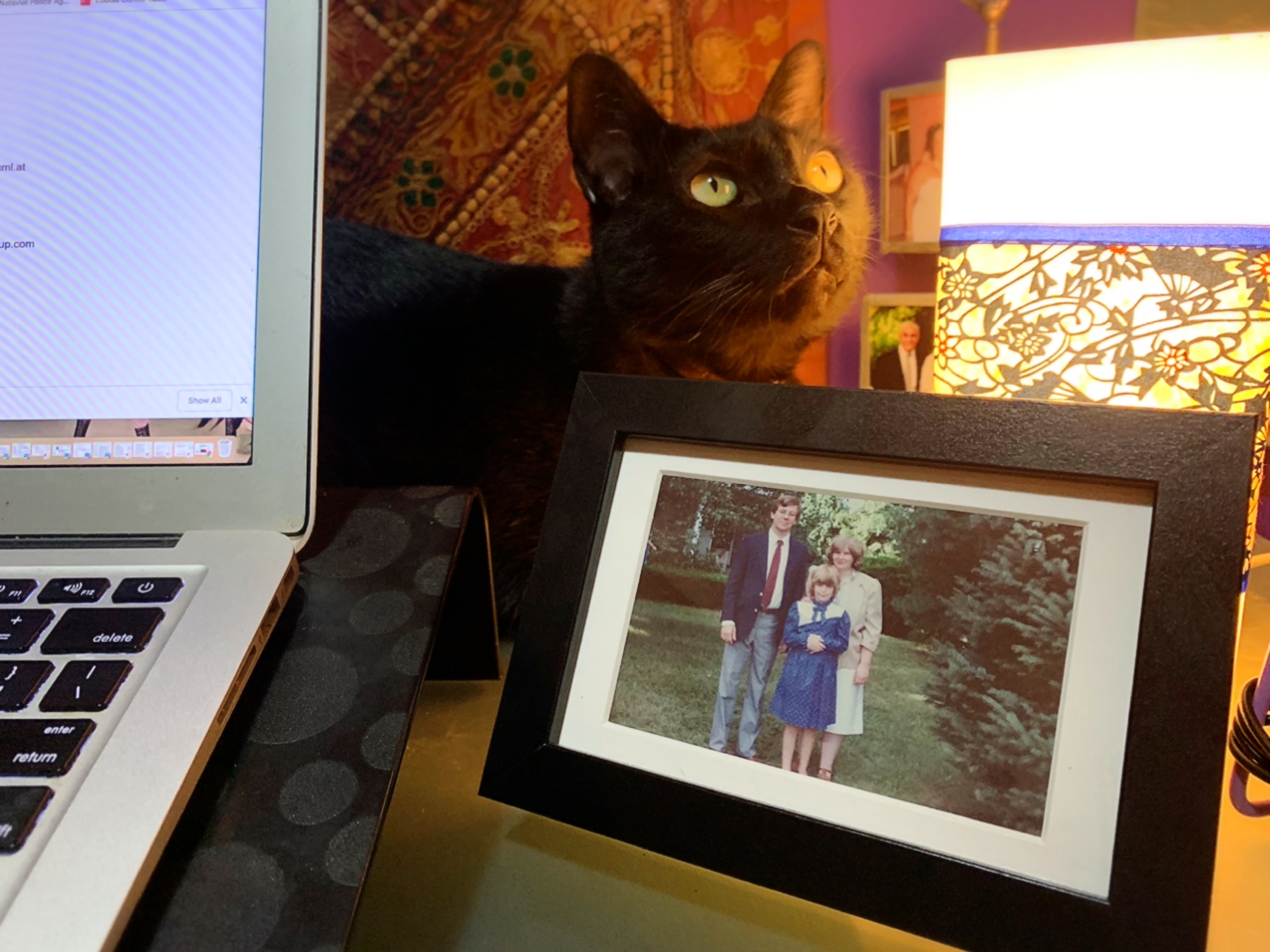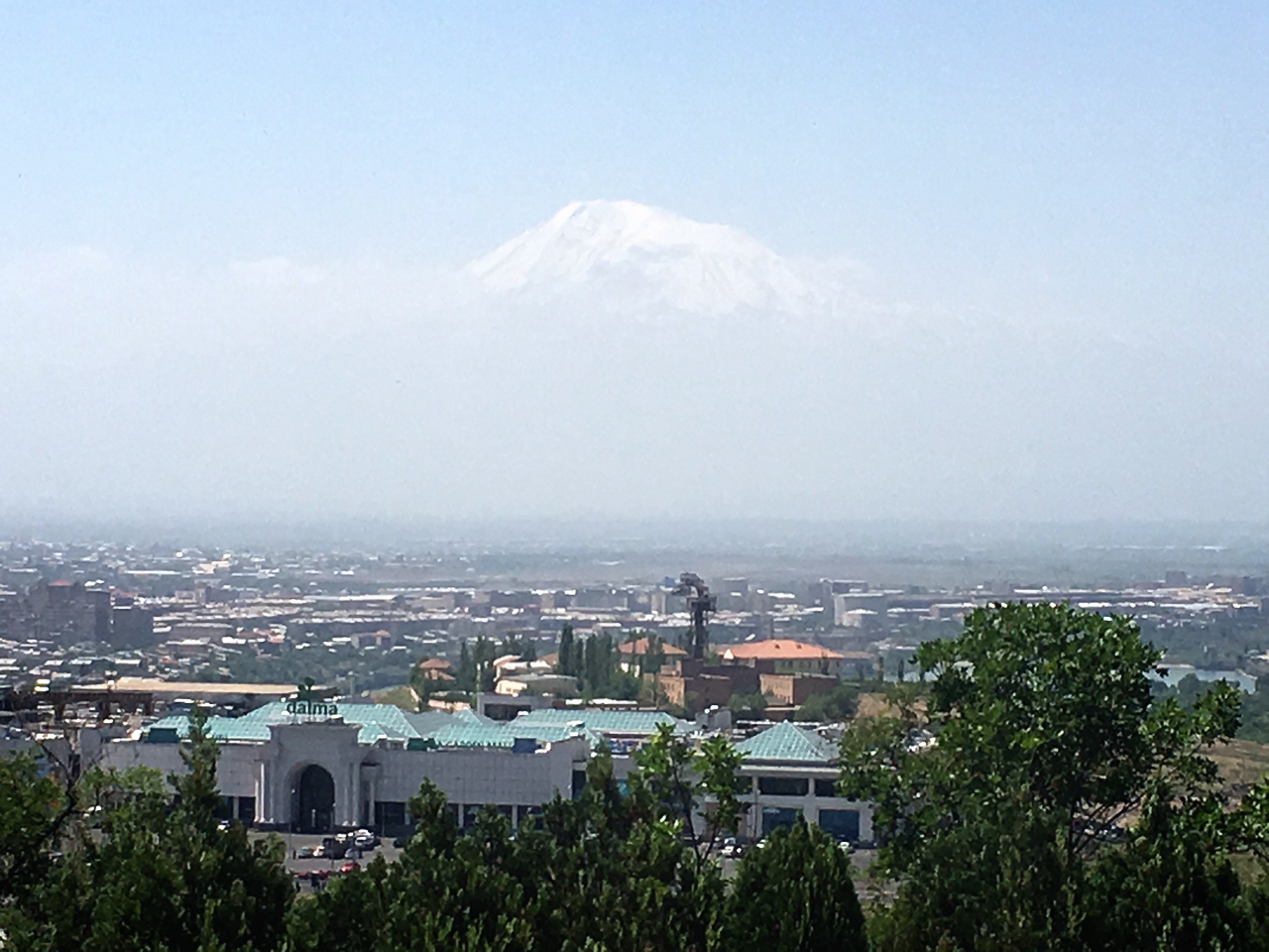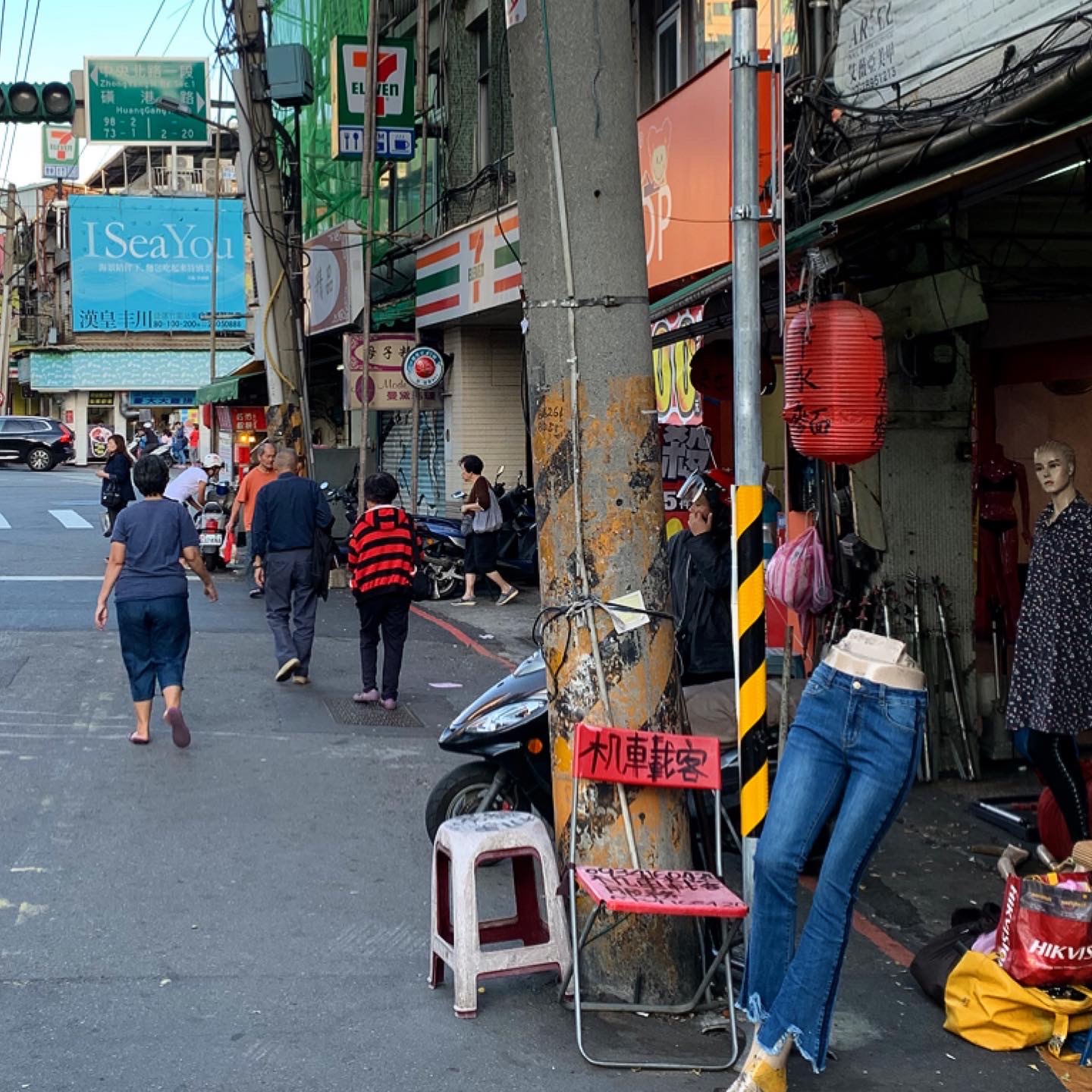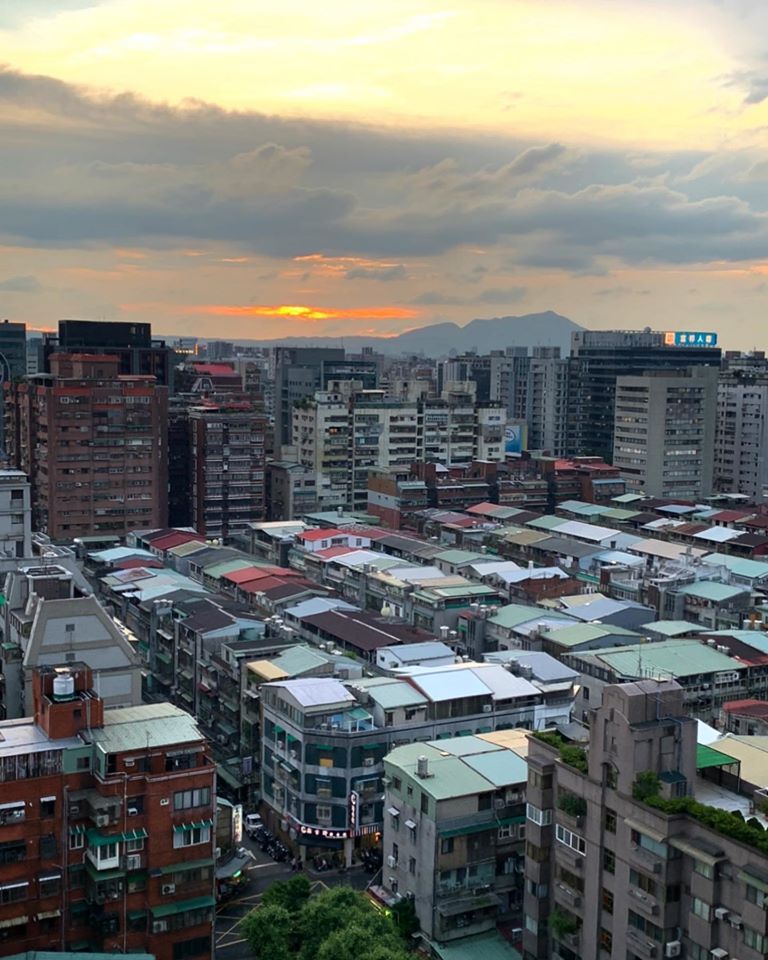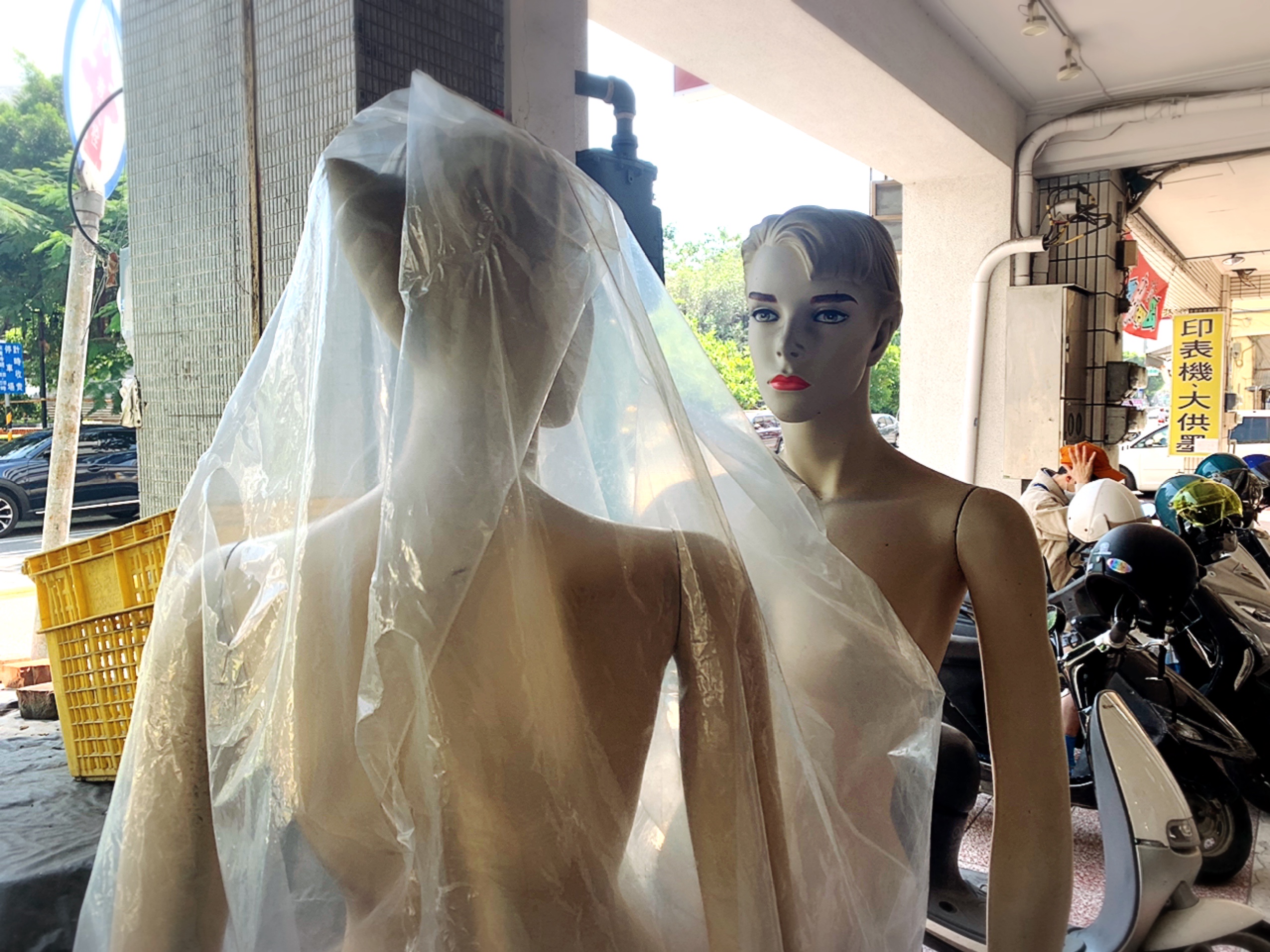
Consider these two facts:
There are more foreign women than men in Taiwan. Mostly, they're from Southeast Asia or China and either married to Taiwanese men or working, often as domestic and health aides.
The opposite is true of "foreign professionals" -- they're not all Western, but the vast majority are male.
Add to that two observations: first, the two communities don't intermingle much, even when it would be beneficial (say, foreign professionals showing up to support foreign blue-collar workers in seeking better labor conditions). Second, while there are social media groups for foreign women in Taiwan, they trend heavily towards heteronormativity. I've heard firsthand complaints from women who don't always fit into expected boxes that there aren't many welcoming spaces for them.
When it comes to love, dating and sex, this is a problem. There just aren't that many of us. In my observation, that means our own perspectives and experiences are simply not heard as much. It also means that there's a subset of expat men who fill that void with pretty brutal stereotypes: that we're all sexless hags (don't click that link, it might be the worst blog post I've ever read and honestly any decent person would take it down). That we're begging for anything we can get, that we're desperate and unwanted, that it's best not to talk to any Western women you aren't interested in. That we're all straight and cis, that we don't date Taiwanese men. Or that it's okay to treat any woman you deem "unfuckable" like garbage.
Each and every one of these assumptions is wrong.
Every once in awhile, I even come across someone assuming I'm single (and bitter, angry, desperate etc. etc.) simply because I'm an outspoken Western woman in Asia. This amuses me, considering how public I am about having been married for quite some time. We celebrated our 10th wedding anniversary last year.
I've written on this topic before but intended to do a new post with more diverse voices for quite some time. So I asked around and found a few women willing to tell their stories, with their full editorial control. Everything here is published with active consent. Together, they dispel the notion that there is any one narrative that can be applied to all of us. Our experiences are varied and unique. They're occasionally heartbreaking or preposterous. They're often fulfilling and fun. They're often far more positive than the stereotypes would have you believe -- and from what these women have said, they're getting it more and better than a lot of the sadsack men filling up the bars we don't go to because we don't need their negative bullshit.
The best way to learn about what life is like for a community of people is to spend time with them, and hear what they have to say if they're willing to talk. It's not to take generalizations you've already made and apply it to everybody. So, I'll stop here and let the stories stand on their own.
From "Uma", in an open relationship:
I moved here ahead of my husband to get us set up here — I didn’t come with a job or recruitment or anything like that, and my husband had some things to do in the US. We have an open relationship, so I’d meet people through social events and had an online dating profile. I also hooked up with a few women, sometimes in a group situation. I remember early on before my husband arrived thinking, because he is a great lover — very considerate, doesn’t make assumptions about what someone does or doesn’t want, in touch and likes to please — I couldn’t wait to introduce some of these women to him so they could have that great experience too.
I had some interesting and fun experiences. Most were with other Westerners, though there were some Asian-Americans. No Taiwanese men, which is unfortunate. I think people who say “I’m just not attracted to Asian men” — well, you can say you’ve never been attracted to one before, that’s just telling your story. But to dismiss all of them as a class? If you only feel attracted to certain body types or races, I wonder what your media consumption has been like? If you’ve mostly only ever shown white men and maybe a couple of black men in sexual situations, then yeah, you’re probably going to believe you’re attracted to one type. Or you’ve mostly been shown a narrow stereotype of diverse Asian men.
It’s the same for women’s bodies: if you are only exposed to one type portrayed sexually you’re likely to think you’re only attracted to that type. “What you like” can change if you want.
Anyway, I had a really good thing going with one Asian-American guy. It was hot chemistry and we were getting into all the kinky stuff you don’t really talk about on those first date like bondage, penetrating him, stuff like that. We both agreed we’d enjoy it until we stopped feeling it, and that’s exactly what happened. It was all healthy, safe, respectful.
At one point my husband and I had a girlfriend. Some people would say crappy things like “oh, she’s your plaything,” but she was our girlfriend for nearly two years; we were all important to each other and emotionally invested in our relationship. It was hard for all of us when that ended, truly.
The main thing I want to say is that dating can be hard anywhere — that would be true in Taipei, Tokyo, Paris, New York. I don’t think it’s especially harder because we’re in Taiwan except where we close ourselves off. My sex life here has been vibrant, exciting, passionate, and fulfilling.
The only personal downside is that, since we don't live in Taipei, you do have to make social things happen in your local community.
And there are some shitty men — I agree it’s harder to avoid them when you don’t live in Taipei. Entitled sexists, racists, you see a lot of alcohol abuse especially if someone doesn’t have a robust local community or support system. There have been times I’ve wanted to tell them off them but I hate to admit I moderate myself, knowing I’ll see them at the next beach party. I don’t say outright that I think they’re garbage people but it probably shows on my face! I hate this feeling afraid to affirm their stupid stereotypes toward Western women in Taiwan, even though I know it’s ridiculous — like if I get mad, I’m just another “bitter angry white woman.” I just “need to get laid” or “don’t have a sense of humor.” I get laid and laugh plenty and well. Maybe you’re just a lazy, entitled bigot?
I’m not interested in those men.
That white Western entitlement, the sort of fat-phobic misogyny that Buxom Babe Abroad has experienced, or the stereotyping they do of Western women where they think we’re sad losers and they’re kings…I mean that’s a boner-killer for me. I don’t want that, nobody with any self-respect wants that, but they think we’re desperate because we don't want THEM? Taiwan deserves better than that. I may not have experienced it in the same way as Buxom Babe because we have different bodies [ed: this person is white and on the slimmer side] but I know the attitude well.
This stereotype some Western men have in Taiwan that Western women are all bitter, angry, desperate — it’s not true. At least for me, I couldn’t be happier or more satisfied.
From "Emma", a lesbian woman in a relationship:
I came out fairly late, in my 20s, and actually moved to Taiwan for a girl. I was living in South Korea, and in the town where I lived, there wasn’t much of a gay scene — in fact we’d always complain about just how hard it was to be gay in that society.
I basically scoured a popular dating site and was talking to someone in Taiwan. I came to Taiwan on vacation to see her, and I just felt this was a much more chill place. I eventually moved here, though that relationship turned out to be somewhat toxic. She was very family-oriented, though she wasn’t out to her family. I felt like she always wanted a lot from me, but didn’t have any time for me. For example, she would get mad that I didn’t wish her father a happy Father’s Day even though he’s not my father, and he didn’t know we were together. She also had a very serious personality. I think she’s abroad now, but anyway that didn’t last.
After that I dated another woman, who was more into partying — specifically the EDM scene. We’d go to a lot of shows, festivals and clubs together. When her mom called, she’d have me put on music or something and tell her she was at a cafe with friends. That was actually a lot of fun, but she had a bit of a hard time being serious or taking us seriously. It didn’t last very long, but I have to say it was a lot of fun!
My current girlfriend is a good mix of the two types — she can be a homebody but will go out if there’s a reason to go out. She’s not out to her whole family yet, but her sister knows. Her mother only knows me as her daughter’s “foreign friend”, or that we live together. This is the first relationship I’ve had here where my girlfriend didn’t live with her parents. She’s planning to come out eventually, so we’ll see where that goes. We’ve been together for more than three years, and we just moved in together recently. So we’re not close to marriage or anything like that yet, though I’m happy it’s legal and possible here. I suppose whenever we do meet, they won’t expect me to be like a typical man in a relationship with their daughter, because I’m very obviously not that at all.
We met on a dating app, which I think everyone does these days. It feels like that’s the easiest way to do it. I did try to go to some lesbian events or bars here, but there just aren’t many bars or specific lesbian spaces, especially compared to what’s on offer for gay men. There are events, though. It feels like that everywhere: all these offerings for gay men — bars, events, parties, nightlife — and not nearly as many for lesbians. We’ve all heard the jokes, but seriously, I do wonder if lesbians just don’t go out enough to support more robust nightlife? They seem to be into more intellectual things like book clubs, but that’s conducive to, you know, friend groups, not necessarily dating. And when there are events or bars, it feels like Ts and Ps hooking up (’T’ for tomboy, ‘P’ for ‘po’ or a feminine lesbian), and it’s like — you’re either one or the other, and there’s not a lot in between. I do see couples where they’re both one or the other, but it’s not very common.
Our first year together was wonderful. She stayed at my place usually, because hers was really small. The second was really tumultuous, but we got counseling and that helped a lot. So now, we still have our ups and downs but we’re much better at communicating and the ups and downs are on an upward trajectory, so I’m hopeful about that. It’s interesting because I just mentioned that binary of two types of lesbian women in Taiwan, but I’m clearly neither — not too tomboyish, not too feminine — and my girlfriend looks like a tomboy but if you get to know her, she has a really feminine personality.
So for me, Taiwan is home. I don’t see any benefit to returning to my home country, and my partner is from here, so obviously this is home for her. And I really like it here, so although I worry about long-term prospects, like health and property ownership, it’s hard to see that far into the future but it makes sense for now.
I used to be way more into nightlife, but COVID has kept me away.
I stay away from a lot of the expat spots because it does just seem to be weird old white men spouting bullshit, and I don’t really want to be around that. There does seem to be an attitude where they think we all want them, but I definitely don’t — like I’m incapable of it.
I used to go to more things — I even went to a “find a wife" party for lesbian women once, though I was basically the only foreigner there. I spent a lot of time with another girl at that party, so I was disappointed that we didn’t go home together.
I do see more white male-Taiwanese female relationships but, eh. I mean there are also just a lot more Western men here than women. I’m not sure why that is, but the disparity in who you see in relationships could be impacted by that.
It’s just wrong to say Western women are all sad sacks here, and anyway it assumes we’re all straight.
I’m pretty hopeful. Since my girlfriend and I just moved in together, there’s been some adjustment. She’s a huge neatnik, and she had to get used to my cats. One of them ate her plant, I bought her two new plants to make up for it. But, you know, that’s how it is when you first move in together. She loves my cats now and it’s going really well. We dated for over 3 years before moving in together, so we defied the old “U-haul” stereotype.
From "Alice", a woman of color who dated in Taiwan before getting into a long-distance relationship:
I’ve lived in Taiwan for about four years on and off — I went back to my home country for awhile for family reasons — and had lived in another Asian country before coming here. I really like Taiwan, but I was the only foreign teacher at my school in the other country so I didn’t have to put up with too much entitled white male behavior.
Here, I have a lot of white male colleagues who are married to Taiwanese women, and they complain at work about how bad their relationship is, their personal lives seem to be a mess. And I think ‘you chose this person, and all you do is complain about them? And you act all entitled — maybe your relationship is terrible because you’re terrible.’
It’s certainly not all Taiwanese women, but there’s a subset who will maybe look for white guys to date just because they’re white, and those are the women these guys often date or marry, and then they say ‘oh Taiwanese women are crazy’ or ‘she’s crazy’ or ‘women are crazy’ but no — you’re crazy and she’s crazy and crazy found each other.
The problem is, white guys are also the only guys I’ve really dated in Taiwan. As a foreign woman who isn’t white, Taiwanese guys don’t seem that interested, or they hit on me but it’s clearly not serious.
Basically, the white guys seem to be the only ones willing to look outside their own community to date. But it’s too bad, because the selection isn’t great. A lot of those guys come here to cash in their white privilege and coast, they half-ass it at work and assume they won’t get called out for it, they might not even be qualified for their jobs, and they talk like they’re these studs who can do anything and get anyone. It’s gross.
And I don't like that it's so racialized -- as a foreign woman of color, I don't want to just date white guys. Where I'm from, sure, people might make friends along cultural, class, professional or education lines. And that's not great either, there are still boundaries [where perhaps there should not be]. But I generally didn’t feel I was only able to make friends with people who looked like me.
There was one guy who told me he’d dated a lot of different women in the past year, and I figured ‘ok so he’s that sort of guy, I’m not into that’ so I turned him down. I didn’t tell him that was why I said no, though.
When I first got here I dated around a bit, there were some casual no-strings things which basically ended with good feelings, because they weren’t that serious.
After I came back to Taiwan I decided to just not date for awhile. That was great, actually! I was so happy, I felt good, emotionally healthy. I was in a really good place. So of course I made the typical mistake: I figured I was really feeling great, in a fantastic place in my life, so why not date someone? And I’ll attract better people too because I do feel confident and happy with myself.
So I met someone through mutual friends. We got along really well, but didn’t trade contacts when we first met. I ran into him again — you know how in Taiwan every foreigner is maybe two degrees separated from everyone else — and this time we did decide to give it a try. He was a part of a very strong community with deep cultural ties, but he didn’t seem to mind that I wasn’t from that community. We got along so well.
Then, not long after we started dating he broke up with me, saying he only wanted a partner from that community. I thought that was a bullshit excuse: he knew who I was before we started dating, it wasn’t a secret, so why go down that road? It seemed like this was his key, his ‘get out of jail free’ card where he could just pull this excuse whenever he wanted. I was a little pissed. I asked him why he didn’t just date women he’d actually partner with and he said he didn’t want to do that here and never dated those women. So basically he was dating women from outside and giving himself this pass to just not tell them this belief until he’s ready to hop out.
It didn’t last long, though it was very intense.
Anyway, maybe we’ll be friends someday because we got along so well, but for now there’s still some chemistry there.
What’s funny is that I started dating another guy from the same community. I hadn't intended to, actually, I’d swiped left on his profile on a dating app because I felt like I'd been there, done that -- I didn't want someone pulling the same thing on me. But he assured me he wasn't like that, and we went out for awhile.
Partly we broke up because of the soft lockdown. it was too hard to see each other and honestly, I felt he just wasn't making nearly enough of an effort. Then he pulled the same crap — “I want to date someone from my community” and I did think, “you say you’re different but honestly you two are exactly the same. I’ve already been through this, so I don't want to hear it, bye.”
Plus, he always wanted me to go to events and such with this group, and I kept saying no, because my ex would be there, and I just wasn’t gonna do that. And even if I did, I’d end up looking like a crazy stalker lady who hunted down some other guy to date so I could get invited and stalk my ex, even if it’s not like that at all — so, just no.
I did go back to the my home country over the summer because I hadn’t seen my family in awhile. I got on another dating app just to meet people, and I ended up meeting someone I really clicked with. What I liked about those dates was how diverse it was; it wasn’t just white guys, or Asian guys. And I think that’s how dating could be, and I wasn’t getting it in Taiwan.
Neither me nor the guy I met wanted to do long distance, but I had to come back, so we’re trying it. I’ll probably leave Taiwan next summer though, I think I’m ready to go.
He’s open to living abroad for awhile, and I do love Taiwan, but we’d have to think about job opportunities for him. I don’t know, we’ll see. It would be cool to come back together, perhaps.
And I found I appreciated dating someone who had a similar cultural background as me. He grew up in my home country although he’s not white either. I didn’t date Taiwanese guys because they didn’t seem interested in me, but I would have dated a Taiwanese American. Having that cultural connection is just one less thing, one less barrier, that you need to worry about and I’ve learned I value that.
Finally, from "Olivia", a married bisexual woman:
When I first got here I was in one of those relationships that really needed to end. We loved each other and we just couldn’t break up, but we needed to. So we tried to be long distance, and then one day she suggested trying an open relationship. We all know where that goes — that’s the end.
I decided to just enjoy being single and date around. If you just want to fuck, that’s easy. People think it’s hard to find someone to fuck if you’re a bigger girl, but it’s not really. I never had a problem. But in the past I was always ‘in a relationship’, I was never single for long, so I was using this time to enjoy seeing multiple people non-exclusively. That could be a lot of fun, but it could also be pretty weird — I brought one guy home and he said ‘oh, you have a cat’. I asked him if that was okay, if he was allergic or anything like that, and he assured me he wasn’t. So afterwards, I look at him and he’s breaking out in hives. It turns out he was deathly allergic to cats, but he wanted to get laid so bad that he pretended not to be. He asked me to go to the hospital with him, but I barely knew the guy!
Another time, I dated this taller guy. My apartment wasn’t very comfortable, so he invited me to his place next time. I got there and he said ‘oh my girlfriend will be here soon’. I was pissed! He kept saying ‘no, no, she’s really cute, you’ll love her’ but I felt like this was a unicorn hunt — like thinking being bi means you’re up for anything including getting together with a couple, but you’re not exactly asked first. I said, well, let’s go to 7-11 first and have a few drinks, but they started fighting in the store so I left. The girlfriend actually chased after me, and they got really weird about it so I just left.
I dated a Taiwanese guy who turned out to have serious issues. We were together for a year, and lived together. He’d get really suspicious of everything, including accusing me of infidelity at times when he was there to see that nothing had happened. He would claim he was getting treatment then the same shit happened again, so that was that.
After that I dated mostly expats for awhile, though not always Westerners. One Chinese-Malaysian guy came over, but before we could get down to business he said something like ‘the problem with Malaysia is all the Malaysians’ so I kicked him out immediately.
Then there were some really strange ones. I dated a guy I thought was really cool for awhile, though deep down something seemed off. He rarely stayed over, and something just seemed…sus. Well, I found out eventually that had been dating — in fact, he was engaged to! — my coworker, someone I literally sat next to at work! He hadn’t realized we were coworkers. She initially broke up with him but eventually took him back. And yet he sent me long, incoherent messages for awhile, until I blocked him.
Then there was the guy who really wanted to try group sex. It was just something he was desperate to experience. I said yes to this, and we got a suite at a nice hotel with a few other curious couples. Well, it turned out that basically everyone there was straight but me! The thing is, the two other women were curious about what it was like to be with a woman, and their partners were fine with them trying it out with me, and I was into it. But this guy was so pissed that this whole orgy thing he’d organized wasn’t all about him and his dick.
There were a few others, but eventually I met my husband through mutual friends, so that’s all in the past now. But this idea that Western women are these sex-starved harpies who want to snatch the D from any white fucker who pops along…no, not really. At least not in my experience. That’s some bullshit they tell themselves.
Someday I'll likely do another one of these -- a Part III, if you will. A trilogy. I hope you've enjoyed the details and learned something about not stereotyping Western women in Taiwan. And please, please remember that we are truly not desperate hags gagging for, ahem, any white fucker who pops along.
We're just not. Good night.

